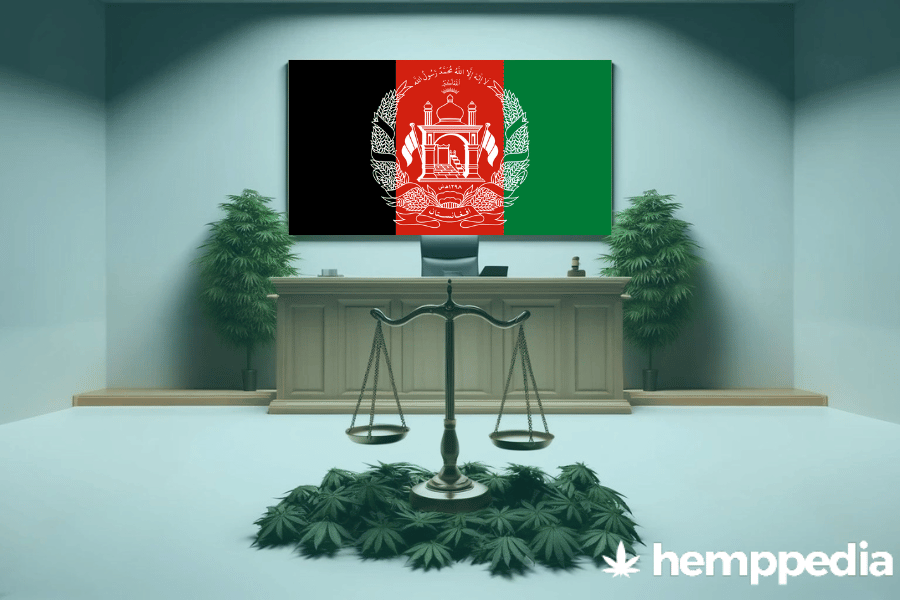TL;DR
Regarding the legality of cannabis in Afghanistan, the use of cannabis, either for recreational or medicinal purposes, remains largely illegal. Although cannabis growth is prevalent due to the ideal climate, the government fiercely enforces anti-narcotics regulations amidst a turbulent security landscape. The table below gives a basic summary of the current legal status:
| Recreational | Medicinal | |
|---|---|---|
| THC | Illegal | Illegal |
| CBD | Illegal | Illegal |
Introduction
The issue of cannabis legality has gained increasing attention worldwide. While a trend towards the decriminalization, and sometimes the full legalization, of cannabis is evident in some nations, many others, including Afghanistan, maintain strict anti-narcotics laws. Understanding the legislation surrounding cannabis is critical as it has potential implications on public health, socio-economic elements, and even security dynamics.
Overview of Cannabis Legislation
- Legalization: refers to the process of removing all legal prohibitions against it.
- Decriminalization: means it would remain illegal, but the legal system would not prosecute a person for possession under a specified amount.
- Medical use: refers to the use of cannabis to treat a disease or alleviate symptoms.
- Recreational Use: refers to the use of cannabis for personal enjoyment, especially in social settings.
Within these categories, laws regarding cannabis vary enormously worldwide and often within the same country. Some nations have made steps towards both the medical and recreational legalization of cannabis, while others maintain a strict zero-tolerance policy. Afghanistan falls within the latter category.
Legal Status
Presently, both the recreational and medicinal use of cannabis is illegal in Afghanistan. Despite the high rates of cannabis growth due to the country’s ideal agricultural conditions, the government has prioritized the clampdown of drug cultivation and trade due to the threat of financing terrorism. (UNODC report)
Historical Context
Historically, Afghanistan has been one of the largest producers of cannabis. However, due to rising concerns over cannabis and opium cultivation funding insurgent groups, the Afghan government launched an aggressive anti-narcotics campaign with assistance from the international community. (RAND Study)
Possession and Use
In Afghanistan, possession of cannabis is considered a crime and can lead to severe penalties, including imprisonment. Use of cannabis is also illegal and there are punitive measures for those found guilty of use. There are no age restrictions or guidelines in place due to its illegal status.
Cultivation and Distribution
Cannabis cultivation in Afghanistan often occurs for homemade use or for local and international illicit trade. Both domestic and international distribution is illegal and subject to severe penalties. Though prevalent, cultivation for personal or commercial use is also illegal.
Enforcement and Penalties
Due to its substantial impact on the national security, Afghanistan’s enforcement of anti-drug laws is strict. Penalties for violation of these laws include imprisonment and, in some situations, property seizures. (BBC News)
Medical Cannabis
Currently, in Afghanistan, no conditions qualify for the prescription of medical cannabis. As such, there is no process in place for obtaining cannabis for medical purposes.
Social and Economic Impact
Despite illegalization, cannabis cultivation and trade continue to have a significant impact on Afghan society. The financial gains from illicit cannabis trade are of considerable concern due to potential to fund militant organizations, prolong instability, thereby hampering economic growth. (Reuters)
Comparative Analysis
Unlike in North America and Western Europe where cannabis legislation is rapidly evolving, Afghanistan, like many nations in the Middle East and Central Asia, retains strict anti-cannabis laws. This divergence in approach creates a complex, global landscape with respect to cannabis legality.
Future Outlook and Ongoing Debates
While there is no indication that Afghanistan will move towards decriminalization or legalization of cannabis in the foreseeable future, efforts to manage illicit cultivation and trade have become a focus of international relations and security agendas.
Conclusion
In conclusion, cannabis remains illegal in Afghanistan both for recreational and medicinal use. Contrasting the global trends towards legalization or decriminalization, Afghanistan’s cannabis laws remain harsh, shaped by its unique socio-political conditions. It is critical to continue monitoring and understanding this evolving global landscape and its myriad of implications.





